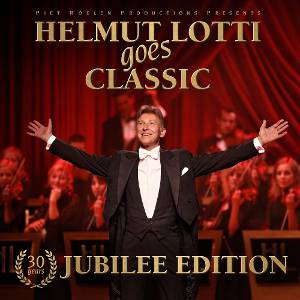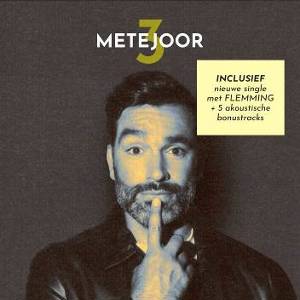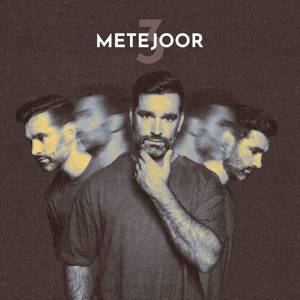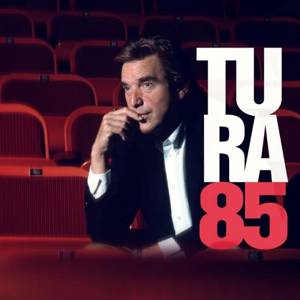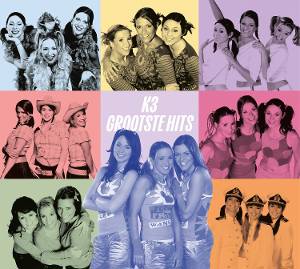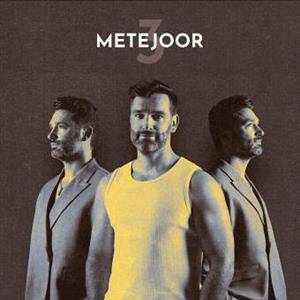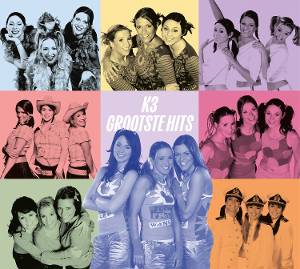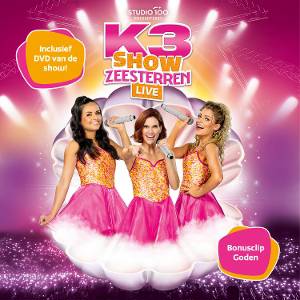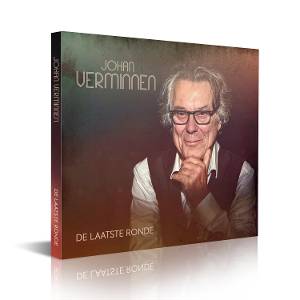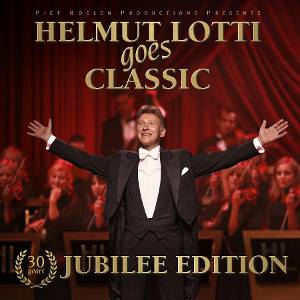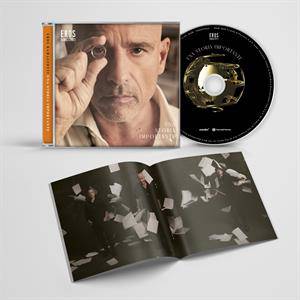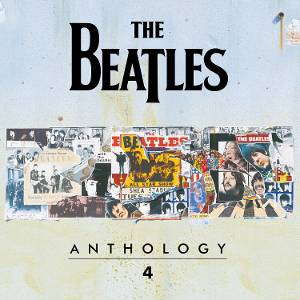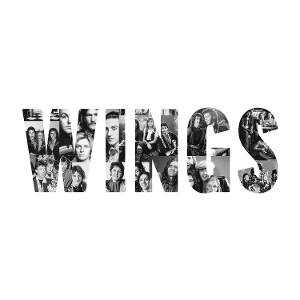
Bedankt voor het vertrouwen het afgelopen jaar! Om jou te bedanken bieden we GRATIS verzending (in België) aan op alles gedurende de hele maand januari.
- Afhalen na 1 uur in een winkel met voorraad
- In januari gratis thuislevering in België
- Ruim aanbod met 7 miljoen producten
Bedankt voor het vertrouwen het afgelopen jaar! Om jou te bedanken bieden we GRATIS verzending (in België) aan op alles gedurende de hele maand januari.
- Afhalen na 1 uur in een winkel met voorraad
- In januari gratis thuislevering in België
- Ruim aanbod met 7 miljoen producten
Zoeken
Onze muziek
Op zoek naar de leukste muziek? Op de webshop van Standaard Boekhandel vind je meer dan je zoekt.Muziek top 10
-
Gedoe - Met exclusieve cover voor Standaard Boekhandel
Pommelien Thijs
- CD met exclusieve cover
-
Helmut Lotti Goes Classic
Helmut Lotti
- CD
-
3
Metejoor
- CD
-
Thank You Johann Strauss
André Rieu
- CD
-
3 - Exclusieve editie
Metejoor
- CD
-
Tura 85 - Met exclusieve cover voor Standaard Boekhandel
Will Tura
- CD
-
Circus Camille CD + DVD
Camille
- CD
-
De grootste hits!
K3
- CD
-
Hits van hier - het beste van 2025
- CD
-
Gedoe
Pommelien Thijs
- LP
Muziek
-
Gedoe - Met exclusieve cover voor Standaard Boekhandel
Pommelien Thijs
- CD met exclusieve cover
- Pommelien Thijs trakteerde haar fans op Rock Werchter 2025 niet alleen op een spetterend optreden, maar ook op groot nieuws. Net voor het slot van haa... Lees meer
€ 17,99Levering 1 à 2 werkdagen Afhalen in de winkel na 1 u.€ 17,99Levering 1 à 2 werkdagen Afhalen in de winkel na 1 u. -
Helmut Lotti Goes Classic
Helmut Lotti
- CD
- Helmut Lotti Goes Classic van Helmut Lotti, met release datum 14 november 2025. Deze versie van Helmut Lotti Goes Classic verschijnt als een 2xCD. Lees meer
€ 21,99Levering 1 à 2 weken Afhalen in de winkel na 1 u.€ 21,99Levering 1 à 2 weken Afhalen in de winkel na 1 u. -
3
Metejoor
- CD
- Het gaat heel hard voor Metejoor… Op vrijdag 31/10 verscheen zijn nieuwe album ‘3’, tegelijk met 2 uitverkochtte concerten in de Afas Dome. Het album ... Lees meer
€ 19,99Levering 2 à 3 weken Afhalen in de winkel na 1 u.€ 19,99Levering 2 à 3 weken Afhalen in de winkel na 1 u. -
Thank You Johann Strauss
André Rieu
- CD
- Thank You Johann Strauss van André Rieu, met release datum 7 november 2025, bevat de volgende nummers: "Perpetuum Mobile", "Kaiserwalzer", "Her die Ha... Lees meer
€ 29,99Levering 1 à 2 werkdagen Afhalen in de winkel na 1 u.€ 29,99Levering 1 à 2 werkdagen Afhalen in de winkel na 1 u. -
3 - Exclusieve editie
Metejoor
- CD
- Exclusieve cover voor Standaard Boekhandel. Op vrijdag 31 oktober 2025, de eerste dag van zijn 2 Sportpaleisconcerten, verschijnt het derde album van ... Lees meer
€ 19,99Afhalen in de winkel na 1 u.€ 19,99Afhalen in de winkel na 1 u. -
Tura 85 - Met exclusieve cover voor Standaard Boekhandel
Will Tura
- CD
- Met exclusieve cover voor Standaard Boekhandel Will Tura 85: De ultieme ode aan de Keizer van het Vlaamse lied Dit jaar viert Will Tura zijn 85ste ver... Lees meer
€ 21,99Levering 1 à 2 werkdagen Afhalen in de winkel na 1 u.€ 21,99Levering 1 à 2 werkdagen Afhalen in de winkel na 1 u. -
Circus Camille CD + DVD
Camille
- CD
- Afgelopen zomer stond Camille in haar eigen Circus in Oostende. Meer dan 20 voorstellingen van haar CIRCUS CAMILLE, goed voor meer dan 50.000 tevreden... Lees meer
€ 22,99Levering 1 à 2 weken Afhalen in de winkel na 1 u.€ 22,99Levering 1 à 2 weken Afhalen in de winkel na 1 u. -
De grootste hits!
K3
- CD
- De Grootste Hits! van K3, met release datum 26 september 2025. Deze versie van De Grootste Hits! verschijnt als een 1xCD. Lees meer
€ 19,99Levering 1 à 2 werkdagen Afhalen in de winkel na 1 u.€ 19,99Levering 1 à 2 werkdagen Afhalen in de winkel na 1 u. -
Hits van hier - het beste van 2025
- CD
- Jaaroverzicht van het allerbeste wat onze artiesten van hier te bieden hadden in 2025. Een prachtige 2cd met oa de Zomerhit van Pommelien Thijs, en ve... Lees meer
€ 21,99Levering 2 à 3 weken Afhalen in de winkel na 1 u.€ 21,99Levering 2 à 3 weken Afhalen in de winkel na 1 u. -
Gedoe
Pommelien Thijs
- LP
- Gedoe van Pommelien Thijs, met release datum 3 oktober 2025. Deze versie van Gedoe verschijnt als een 1xLP. Het product bevat een ondoorzichtig, blauw... Lees meer
€ 29,99Levering 2 à 3 weken Afhalen in de winkel na 1 u.€ 29,99Levering 2 à 3 weken Afhalen in de winkel na 1 u. -
3
Metejoor
- CD
- 3 van Metejoor, met release datum 31 oktober 2025, bevat de volgende nummers: "Ik Ga Er Niets Aan Doen", "Als De Hemel Valt Op Aarde", "Bespaar Je De ... Lees meer
€ 19,99Levering 1 à 2 werkdagen Afhalen in de winkel na 1 u.€ 19,99Levering 1 à 2 werkdagen Afhalen in de winkel na 1 u. -
Lux
Rosalía
- CD
- LUX van ROSALÍA, met release datum 7 november 2025, bevat de volgende nummers: "Divinize", "Mio Cristo", "La Perla", "De Madrugá" en meer. Deze versie... Lees meer
€ 17,99Levering 1 à 2 weken Afhalen in de winkel na 1 u.€ 17,99Levering 1 à 2 weken Afhalen in de winkel na 1 u. -
De grootste hits!
K3
- LP
- De Grootste Hits! van K3, met release datum 26 september 2025. Deze versie van De Grootste Hits! verschijnt als een 1xLP. Lees meer
€ 32,99Levering 2 à 3 weken Afhalen in de winkel na 1 u.€ 32,99Levering 2 à 3 weken Afhalen in de winkel na 1 u. -
K3 show zeesterren
K3
- CD
- K3 komt naar je toe met hun gloednieuwe show Zeesterren! Smeer dus maar je stem, haal je dansbenen boven, Èn maak je klaar voor een betoverend avontuu... Lees meer
€ 19,99Levering 2 à 3 weken Afhalen in de winkel na 1 u.€ 19,99Levering 2 à 3 weken Afhalen in de winkel na 1 u. -
De laatste ronde
Johan Verminnen
- CD
- Mijn medestrijders met groot talent, ik zag ze verdwijnen en denk aan hen. Ze namen geen afscheid van hun publiek. Die fout wil ik niet maken, absoluu... Lees meer
€ 20,99Levering 1 à 2 weken Afhalen in de winkel na 1 u.€ 20,99Levering 1 à 2 weken Afhalen in de winkel na 1 u. -
Gedoe
Pommelien Thijs
- LP
- Pommelien Thijs trakteerde haar fans op Rock Werchter 2025 niet alleen op een spetterend optreden, maar ook op groot nieuws. Net voor het slot van haa... Lees meer
€ 27,99Levering 2 à 3 weken Afhalen in de winkel na 1 u.€ 27,99Levering 2 à 3 weken Afhalen in de winkel na 1 u. -
Kpop demon hunters
va
- CD
- KPop Demon Hunters van Various Artists, met release datum 5 september 2025. Deze versie van KPop Demon Hunters verschijnt als een 1xCD. Lees meer
€ 21,99Levering 1 à 2 weken Afhalen in de winkel na 1 u.€ 21,99Levering 1 à 2 weken Afhalen in de winkel na 1 u. -
Liefde voor muziek 2025
- CD
- Liefde Voor Muziek 2025 van Various Artists, met release datum 9 mei 2025. Deze versie van Liefde Voor Muziek 2025 verschijnt als een 1xCD. Lees meer
€ 21,99Levering 1 à 2 weken Afhalen in de winkel na 1 u.€ 21,99Levering 1 à 2 weken Afhalen in de winkel na 1 u. -
Het beste uit Milo
Milo
- CD
- MILO, de telenovelle met Camille Dhont in de hoofdrol, blijft het na 1,5 jaar enorm goed doen. Helaas is het einde van de reeks in zicht, maar eerst i... Lees meer
€ 19,99Levering 1 à 2 werkdagen Afhalen in de winkel na 1 u.€ 19,99Levering 1 à 2 werkdagen Afhalen in de winkel na 1 u. -
Helmut Lotti Goes Classic - 30 Years Jubilee Edition
Helmut Lotti
- LP
- Helmut Lotti Goes Classic - 30 Years Jubilee Edition van Helmut Lotti, met release datum 21 november 2025. Deze versie van Helmut Lotti Goes Classic -... Lees meer
€ 75,99Levering 1 à 2 weken Afhalen in de winkel na 1 u.€ 75,99Levering 1 à 2 weken Afhalen in de winkel na 1 u. -
Una storia importante
Eros Ramazzotti
- CD
- Una Storia Importante van Eros Ramazzotti, met release datum 21 november 2025. Deze versie van Una Storia Importante verschijnt als een 1xCD. Lees meer
€ 17,99Levering 1 à 2 weken Afhalen in de winkel na 1 u.€ 17,99Levering 1 à 2 weken Afhalen in de winkel na 1 u. -
Des nefles et des groseilles...
Salvatore Adamo
- CD
- Des Nefles Et Des Groseilles... van Salvatore Adamo, met release datum 14 november 2025. Deze versie van Des Nefles Et Des Groseilles... verschijnt al... Lees meer
€ 20,99Levering 2 à 3 weken Afhalen in de winkel na 1 u.€ 20,99Levering 2 à 3 weken Afhalen in de winkel na 1 u. -
Anthology 4
The Beatles
- CD
- Anthology 4 van The Beatles, met release datum 21 november 2025, bevat de volgende nummers: "This Boy (Takes 12 And 13)", "If I Fell (Take 11)", "Ever... Lees meer
€ 25,99Levering 1 à 2 weken Afhalen in de winkel na 1 u.€ 25,99Levering 1 à 2 weken Afhalen in de winkel na 1 u. -
Wings
Paul McCartney & Wings
- CD
- WINGS van Paul McCartney & Wings, met release datum 7 november 2025, bevat de volgende nummers: "Silly Love Songs", "Nineteen Hundred And Eighty Five"... Lees meer
€ 25,99Levering 1 à 2 weken Afhalen in de winkel na 1 u.€ 25,99Levering 1 à 2 weken Afhalen in de winkel na 1 u.








